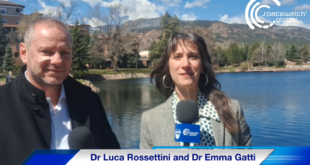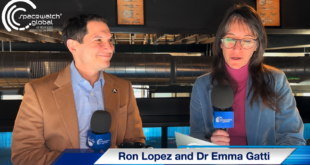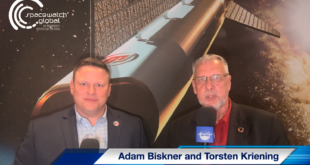
The Space Foundation is seeking nominations for induction into the prestigious Space Technology Hall of Fame® in 2021. This international program honors innovations by organizations and individuals who transform space technology into commercial April 20, 2020 products that improve life on Earth.
The Space Technology Hall of Fame recognizes the life-changing and life-enhancing technologies emerging from the global space economy; honors the scientists, engineers and innovators responsible; and communicates to the public the importance of these technologies as a return on investment in space exploration.
Nominations must be completed online by Friday, August 14, 2020. Anyone may submit nominations of technologies developed anywhere in the world for use in space and then modified or adopted for use on Earth.
Selection Criteria
Selection criteria can be found at www.SpaceTechHallofFame.org and includes:
Public Response (Maximum 15 points) – The public response elicited by the technology: Can the spin-off application be easily grasped and understood by the general public? Does it have a promotional value for humanity in highlighting the benefits of space exploration? Does it stimulate interest and pursuit of careers and/or grow the workforce pipeline in the space economy?
Societal Benefit (Maximum 15 points) – The technology’s positive impact on health, safety, efficiency, conservation, education, or other societal advantages: Does the technology have important benefits for a significant segment of humanity or society as a whole? Does the technology make for better lives and a better world?
Economic Benefit (Maximum 10 points) – The economic activity resulting from the technology: Has the technology been the basis of or a significant contributor to a successfully selling product(s) and/or generated a new growing company(s)? Has it helped cultivate a vibrant and economically strong space industry?
Leadership Investment (Maximum 5 points) – The significance of the development efforts: Was the initial development effort an example of an inclusive, innovative and sustainable workforce, and/or did the development effort provide space technology entrepreneurial opportunities?
Longevity (Maximum 5 points) – The technology’s commercial life: How long has the technology and/or its application been successfully in use? Has it successfully evolved over time and become more refined and distributed in its use and applications?
Judging
Each nomination is reviewed for completeness, assessed by technical experts and then ranked by a prestigious panel of judges who rate according to selection criteria.
Inducted Technologies
These technologies were inducted into the Space Technology Hall of Fame in 2020:
- Audio Conference Bridge Technology
- Apollo 70 Cardiac Care Monitoring System
- Traveling-Wave Tube Amplifier
Other inductees have included energy-saving technologies, health improvement technologies, satellite and telecommunication technologies, and practical commercial devices. Some examples are the automatic external defibrillator; non-invasive breast biopsy technology; anti-shock garments; LASIK eye surgery; implantable pacemakers and hearing aids; and technologies that power cellular phones, terrestrial networks and satellite broadcast television and radio communications; low-density, light-weight flexible aerogel insulating material; and a high-resolution optical sensing system that detects forest fires before they can cause serious environmental damage.
For more information or questions regarding the nomination process, contact [email protected]. Induction will take place during the Space Foundation’s 37th Space Symposium, to be held in Colorado Springs, Colo., April 12 – April 15, 2021.
Additional information about the Space Technology Hall of Fame, including a complete list of inducted technologies, is available at www.SpaceTechHallofFame.org.
This announcement was posted on 20 April 2020.
 SpaceWatch.Global An independent perspective on space
SpaceWatch.Global An independent perspective on space




